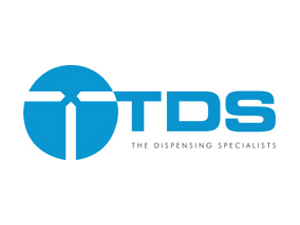
Interest rates are on the rise. If you currently have a loan or if you have applied for finance in recent times, then you have likely had to deal with ballooning monthly loan repayments.
Thankfully, there are ways to take control of the situation before it’s too late. So, what can borrowers do to alleviate the impact of these increased loan payments and not be overburdened with debt?
Know the difference between good and bad debt
Not all debt is created equal. While all debt is taken out with a specific purpose, some debt is better than others.
For example, any loan used to finance something that can offer a positive investment return is good debt. Any debt that is tax deductible and/or has a low interest can also fall under the category of good debt.
On the other hand, bad debt is defined as exactly the opposite – that could mean a debt for an investment providing a negative return, a debt that is not tax deductible and/or a debt that is at a very high interest rate. Generally, the worst types of debt are credit cards and payday loans.
It’s important that these bad debts are paid off first. If possible, aim to pay these off as quick as possible and try avoiding them if you can.
Cut your losses
If you are carrying contracts that are not profitable then now may be the right time to cut your losses and renegotiate your contracts.
In many cases it may be better to give up a contract for an unprofitable client and redeploy your staff and resources into those that will make you money.
In order to do this, business owners should analyse their contracts to get an understanding on how they are performing.
Those that are not hitting the mark, should be discussed with the client and a strategy should be put in place to turn them around or stop doing the work.
Get your pricing right
Pricing is one of the most powerful tools in a business owners toolbox. Used correctly, it can help you build your business, used incorrectly and it can take your business away.
As the cost of business increases, you need to consider your pricing strategy or be prepared to lose margin.
Perform a spending audit
A short-term solution to handling higher loan repayments is to assess your discretionary spending. It is important to document your spending.
Starting with any money that has been paid for rent or paid off debt, add to this list details of where money has been spent in the last month on things that may not be essential.
Evaluate whether it has been spent on necessary items and if your spending habits are ‘overweight’ in any areas.
This exercise will provide a good overview of where your hard-earned money is going and will be a useful benchmark for setting a monthly budget.
When times are good it’s very easy to form bad spending habits, so now is a good time to find out if you have any.
Make sure you are not paying too much tax
Making profit takes a lot of hard work, don’t pay more of it in taxes than you need to. Ask questions and speak with your accountant about your situation.
Make sure you have an efficient structure for your business and be wary of the additional tax that can come from drawing funds from your structures.
Make sure you invest in having a good accountant that can help you keep more of what you earn so you can manage the increasing debt repayments that everyone is experiencing.
Try to do more with less
This is easy to say, but hard to do. However, if you can develop good systems, invest in the right technology and build high quality teams then it is possible to become more efficient.
To get started, find out what metric gives you the best indication of efficiency in your business from week to week. Then measure it and take action to see if you can improve it.
Forecast
Make sure you have a cashflow forecast that you update weekly, or at least monthly, and that you refer to when making decisions on what to do next.
When done right, your forecast will tell you the future. It will tell you if you can expect to experience negative cashflow at certain times of the year and it can be adjusted to see how changes to your strategy will impact your cashflow.
The forecast can then be used to help you plan and address the challenges you may be facing now and those you potentially will face along the way.
It is an invaluable resource when it comes to your decision-making process. It is also wise to ask for help, it is easy to make mistakes when forecasting, so get help.
Finally, don’t overextend yourself, get advice and build a cash buffer if possible. If you follow these steps, then you will be on your way to dealing with the rising loan repayments.
If you need a hand, then ask for help.
Andrew Ash is Director, Accounting and Tax, at HLB Mann Judd. He can be reached at aash@hlbnsw.com.au
This first appeared in the March/April issue of INCLEAN magazine.
Comment below to have your say on this story.
If you have a news story or tip-off, get in touch at info@incleanmag.com.au
Sign up to INCLEAN’s newsletter.




